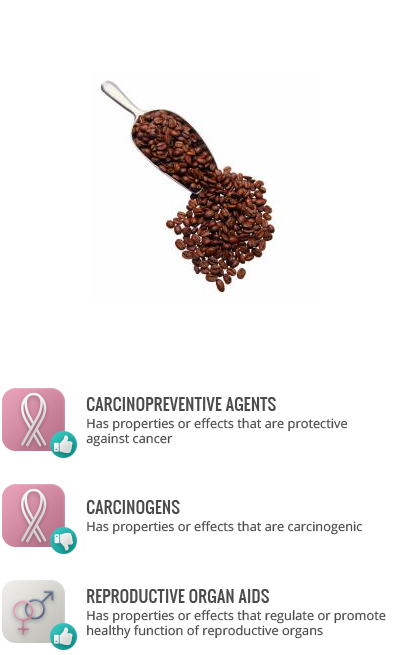Caffeine
Definition
Caffeine is a stimulant of the central nervous system and a psychoactive drug. It increases alertness and reduces fatigue.
Health considerations
Consumption of caffeine via coffee is associated with an overall lower risk of some types of cancer, but an increased risk of bladder cancer with heavy consumption (over 40 cups a week.) Caffeine may act as a diuretic in those not accustomed to it, but not with regular consumers. Pre-workout caffeine may improve athletic performance, particularly muscle power. Caffeine increases 24 hour energy expenditure, with an 8 to 11% increase in lean patients in one study. In males it can improve sperm quality. Consumption above one’s tolerance level can interfere with sleep and mood and cause headaches or changes to heart rhythm.
Keep in mind
Individual tolerances and responses to caffeine vary. Those with anxiety may be particularly sensitive. Caffeine content varies significantly in coffee depending on brewing method, grounds size, and bean variety. Caffeine consumption in healthy adults is advised to be limited to 300-400mg a day.
May be found in
Coffee, tea, soft drinks, chocolate, foods containing cocoa, guarana, yerba maté, energy drinks
References
Journal of the American Dietetic Association
Food and Chemical Toxicology
Psychiatry Research
Cancer Letters
Journal of the International Society of Sports Nutrition
Medline Plus
Taylor & Francis Online
Sigma-Aldrich
International Journal of Cancer


